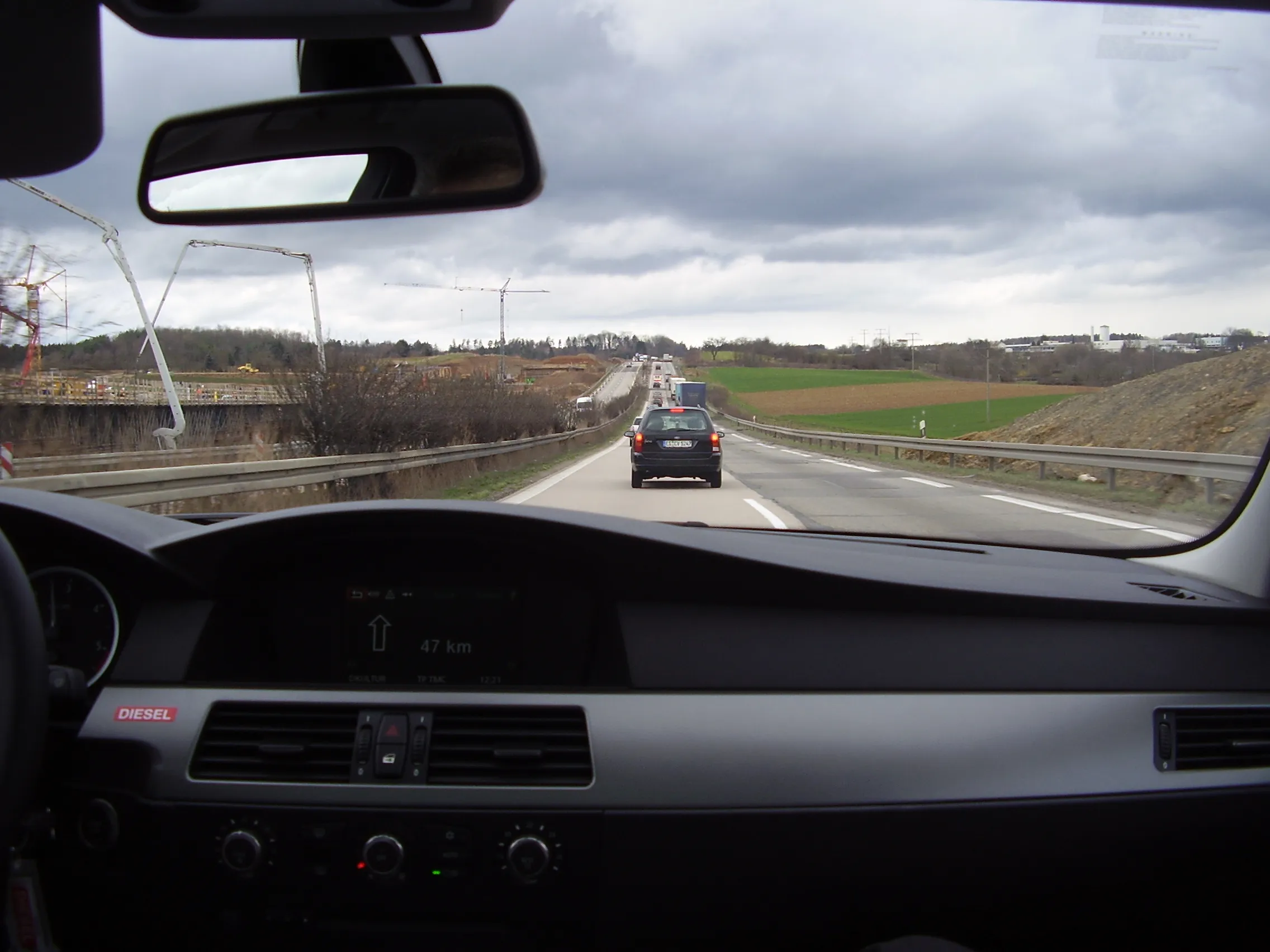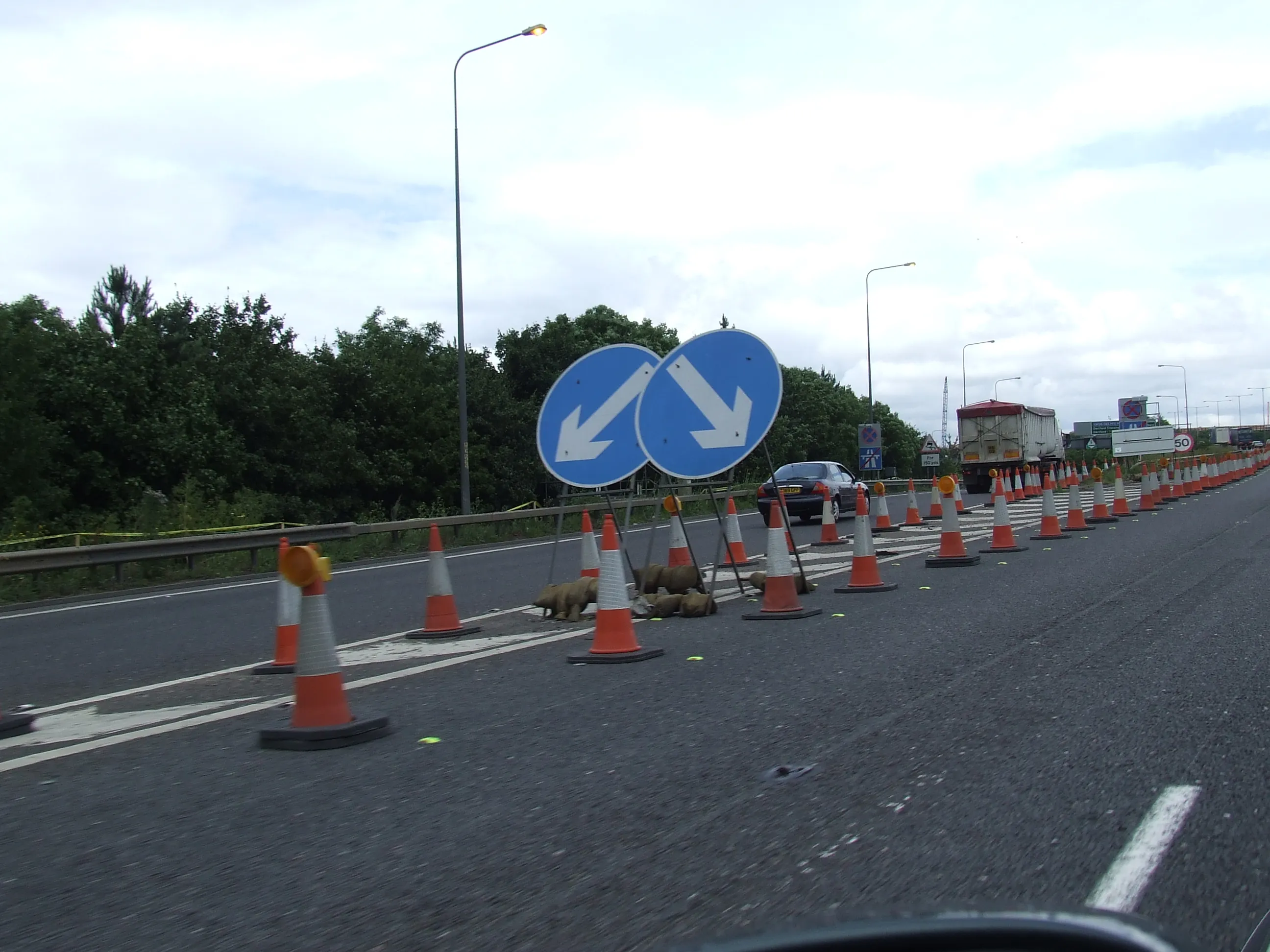A major US manufacturer of equipment for building and restoring roads is spearheading a national campaign to have the Federal Government increase funding for America’s much needed highway repairs.
Ben Brock, chief executive of Astec Industries, based in Tennessee, is urging people in the transportation and related industries to send a message to their Congressman through the Don’t Let America Dead End website.
Astec’s Don't Let America Dead End also includes a national trade ad campaign, direct outrea
January 15, 2015
Read time: 3 mins
RSSA major US manufacturer of equipment for building and restoring roads is spearheading a national campaign to have the Federal Government increase funding for America’s much needed highway repairs.
Ben Brock, chief executive of681 Astec Industries, based in Tennessee, is urging people in the transportation and related industries to send a message to their Congressman through the Don’t Let America Dead End website.
Astec’s Don't Let America Dead End also includes a national trade ad campaign, direct outreach to federally elected officials, e-mail marketing, a sales-force effort and educational material.
Concern over the future of the US road system coincides with a major European pavement recycling conference in Paris in February 22-25, the Pavement Preservation and Recycling Summit. The PPRS event agenda – now available as a downloadable pdf – details the maintenance and renovation issues to be covered by the international speakers, many from the US.
Analysts on both side of the Atlantic Ocean have said costs to clear a backlog of repairs are mounting year on year. It’s been too easy in the recent past to let funding for highway maintenance slip out of the spotlight, Brock told3260 World Highways. What is needed, in the US and abroad, is a new perspective on the importance of highway asset management.
“Government officials need to have the mindset that the surface of the road is no different than the roof of their home,” Brock said. “If the roof of their home is leaking, valuable things could be ruined, if not totally lost. The replacement cost would be much higher today – assuming you even could replace them.”
A road surface in poor condition is similar to a leaking roof, Brock explained. “Water seeps in and deteriorates the base, which is most valuable and very expensive to replace. In this way, maintenance money is smart money because maintaining roads is not optional. It protects not only the asset investment, but keeps travelling surfaces safe for the public.”
Jean-Francois Corte, secretary general of the World Road Association (3141 PIARC), based in Paris, has echoed Brock’s concern over road maintenance.
“What’s needed right now is at least a medium-term vision to embrace the right type of maintenance, a strong strategy,” said Corte, who will welcome attendees to PPRS during the official opening session on Feb 23. “Because there has been insufficient maintenance, road networks are degrading faster. Many highways authorities don’t have this medium- or long-term approach to highway maintenance because they are bound by their government’s annual budgets.”
Importantly, attendees to the Pavement Preservation and Recycling Summit in Paris next month will learn how, during these austere times, to put the business case forward to ensure more investment is forthcoming when and where it is needed most.
To find out more about the PPRS 2015 event and register, please visit the official7924 PPRS 2015 website.
A recent publication by PIARC, called The Importance of Road Maintenance, is available as a free download on the PIARC website.
Ben Brock, chief executive of
Astec’s Don't Let America Dead End also includes a national trade ad campaign, direct outreach to federally elected officials, e-mail marketing, a sales-force effort and educational material.
Concern over the future of the US road system coincides with a major European pavement recycling conference in Paris in February 22-25, the Pavement Preservation and Recycling Summit. The PPRS event agenda – now available as a downloadable pdf – details the maintenance and renovation issues to be covered by the international speakers, many from the US.
Analysts on both side of the Atlantic Ocean have said costs to clear a backlog of repairs are mounting year on year. It’s been too easy in the recent past to let funding for highway maintenance slip out of the spotlight, Brock told
“Government officials need to have the mindset that the surface of the road is no different than the roof of their home,” Brock said. “If the roof of their home is leaking, valuable things could be ruined, if not totally lost. The replacement cost would be much higher today – assuming you even could replace them.”
A road surface in poor condition is similar to a leaking roof, Brock explained. “Water seeps in and deteriorates the base, which is most valuable and very expensive to replace. In this way, maintenance money is smart money because maintaining roads is not optional. It protects not only the asset investment, but keeps travelling surfaces safe for the public.”
Jean-Francois Corte, secretary general of the World Road Association (
“What’s needed right now is at least a medium-term vision to embrace the right type of maintenance, a strong strategy,” said Corte, who will welcome attendees to PPRS during the official opening session on Feb 23. “Because there has been insufficient maintenance, road networks are degrading faster. Many highways authorities don’t have this medium- or long-term approach to highway maintenance because they are bound by their government’s annual budgets.”
Importantly, attendees to the Pavement Preservation and Recycling Summit in Paris next month will learn how, during these austere times, to put the business case forward to ensure more investment is forthcoming when and where it is needed most.
To find out more about the PPRS 2015 event and register, please visit the official
A recent publication by PIARC, called The Importance of Road Maintenance, is available as a free download on the PIARC website.








